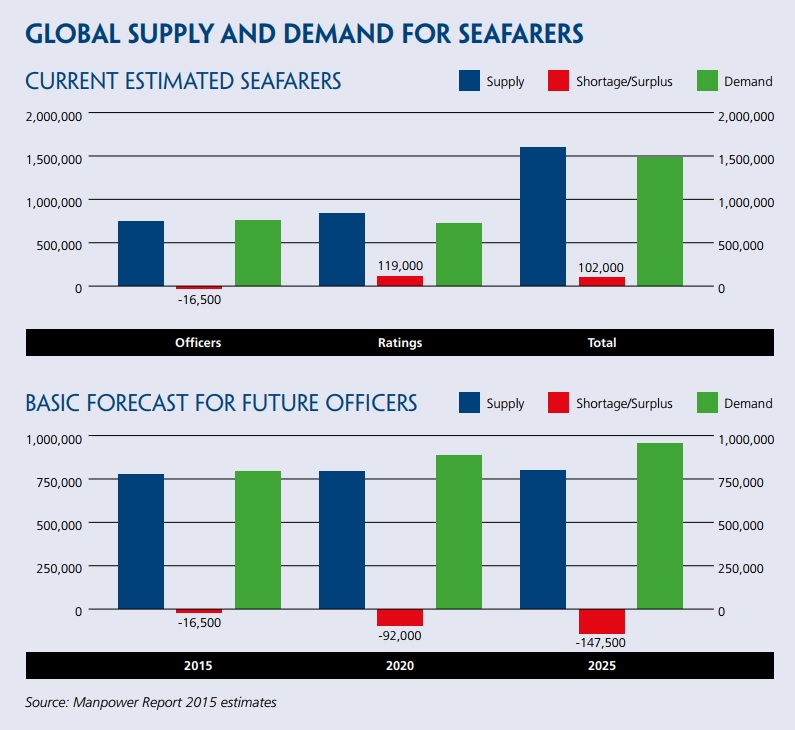In its latest report highlighting key issues in the maritime, ICS focused among others on major points on global supply and demand for seafarers, revealing a current global shortage of about 16,500 officers (2.1%), but a surplus of about 119,000 ratings (15.8%).
In particular, at the IMO MSC in May 2016, ICS and BIMCO launched the results of their latest five year Manpower Report on the global supply and demand for seafarers, revealing a considerable increase in the worldwide supply of officers since 2010, with the supply of ratings increasing too.
As explained, the global demand for seafarers in 2015 is estimated at 1,545,000, with the industry estimated to need approximately 790,500 officers and 754,500 ratings. As a result of the substantial growth in the number of ships in the world fleet since 2010, the estimated demand for officers has increased significantly, although the demand for ratings has increased by only 1%. The figures therefore suggest a current global shortage of about 16,500 officers (2.1%) but a surplus of about 119,000 ratings (15.8%).

According to the report, the industry has made good progress in recent years with respect to increasing recruitment and training levels, and reducing officer wastage. However, ICS and BIMCO predict that, unless training levels increase significantly, the growth in demand for seafarers could generate a serious shortage in the total supply of officers. Without continuing efforts to promote careers at sea and improve levels of recruitment and retention, it cannot be guaranteed that there will be an abundant supply of qualified and competent seafarers in the future.
In addition, the ICS report reminded MLC issues being addressed by the ICS Labour Affairs Committee during 2017. These include Australia’s interpretation of the ILO MLC concerning the maximum period of continuous seagoing service before leave is required, the expiry date of a seafarer’s contract (as stipulated by the MLC) and potential PSC difficulties. ICS is also working with ITF with the aim of producing a new handbook on the provision of welfare services to support the provisions of the MLC.































































